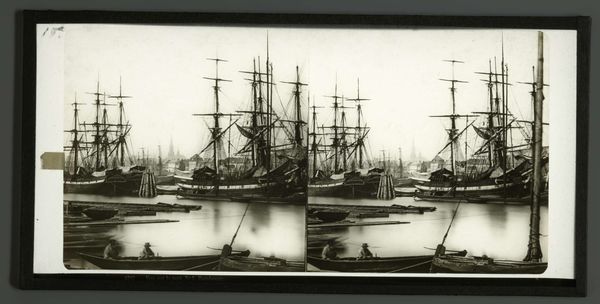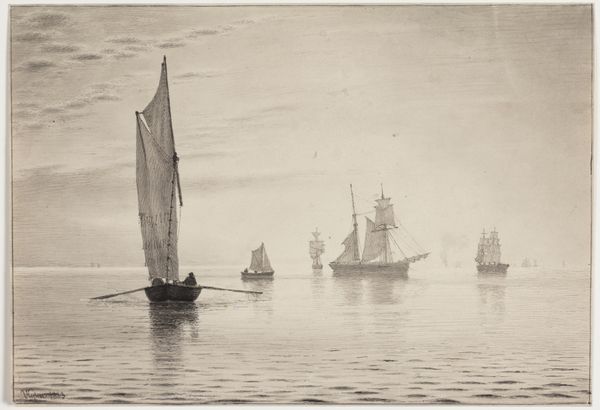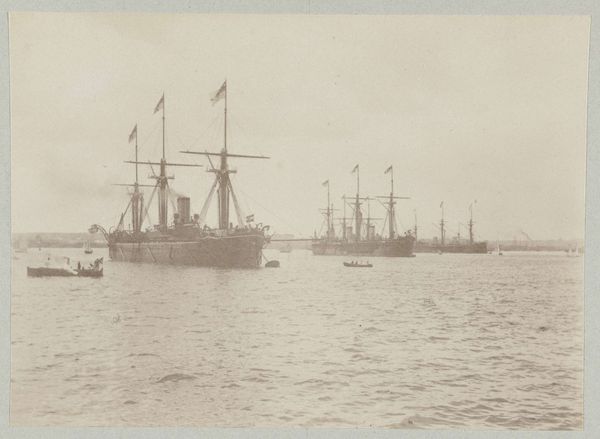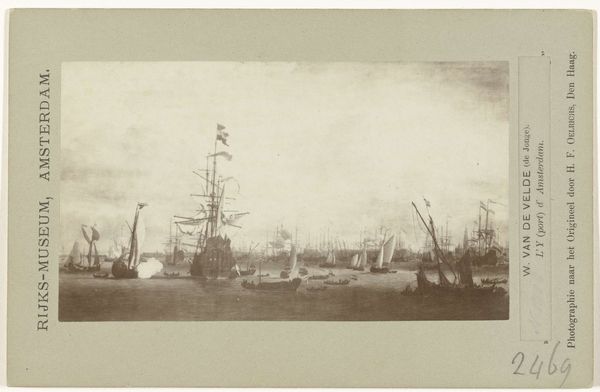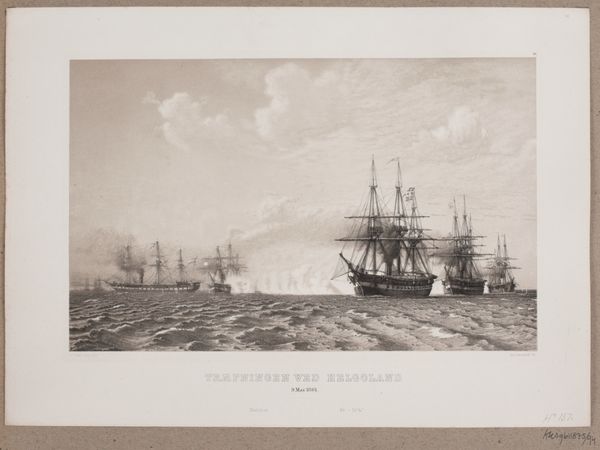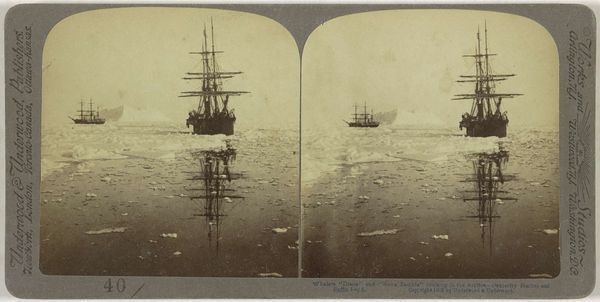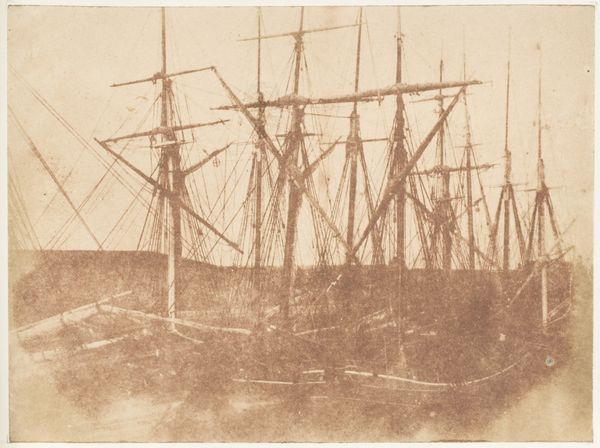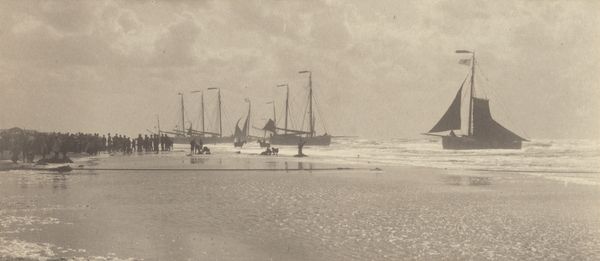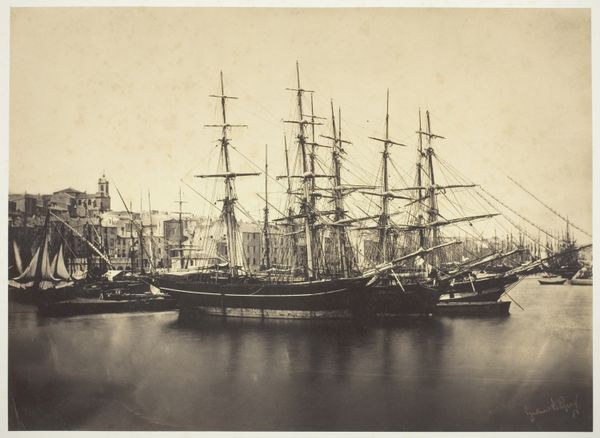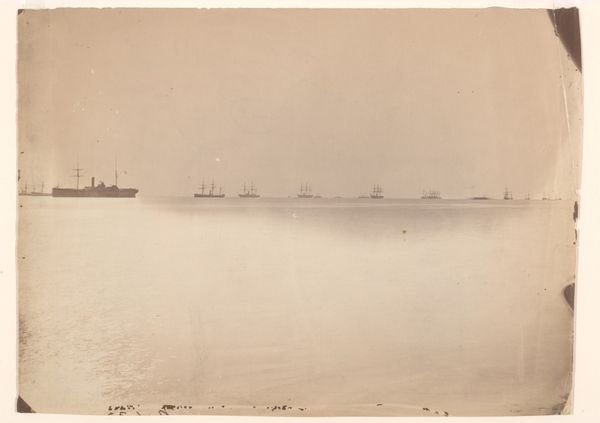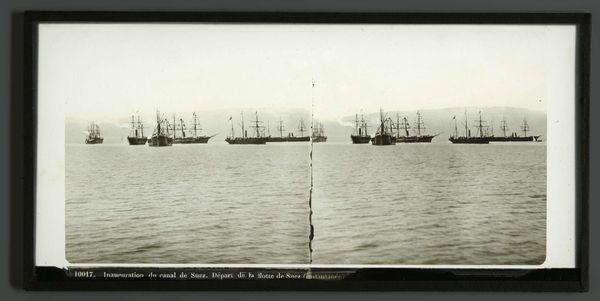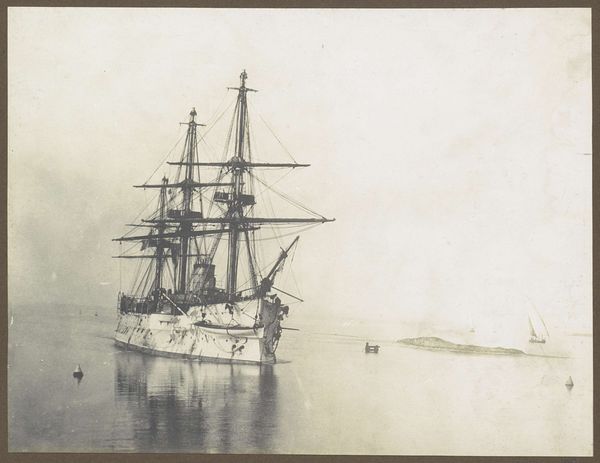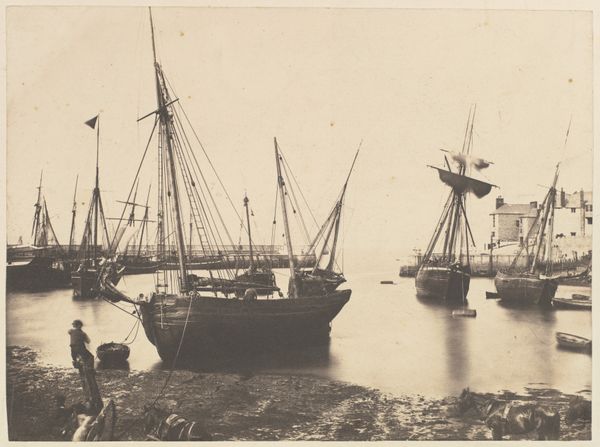
#
beige
#
yellowing
#
aged paper
#
muted colour palette
#
photo restoration
#
ship
#
light coloured
#
white palette
#
yellow element
#
soft colour palette
#
watercolor
#
sea
Dimensions: Mount: 21 in. × 26 3/4 in. (53.3 × 68 cm) Image: 11 13/16 in. × 16 in. (30 × 40.7 cm)
Copyright: Public Domain
Curator: We are standing before Gustave Le Gray's "The French and English Fleets, Cherbourg," created in 1858. Editor: It’s like looking at a dream on aged parchment. So soft, so muted. It makes me want to exhale and forget about timelines and to-do lists. Curator: Observe the masterful arrangement of forms. Le Gray’s utilization of the horizon line divides the composition, emphasizing the ships' positions relative to both the water and the sky, achieving a compelling sense of depth. Editor: There’s such stillness, yet these are warships. Did you expect pomp, something jingoistic? Instead it whispers. Like memory, selective and hazy. Almost like a collective noun where each ship stands on its own, apart from their singular and potentially combative objective. It's the opposite of epic—intimate, and dare I say it, serene. Curator: That interpretation hinges perhaps on your disinterest of its technical achievement. Le Gray, you see, combined multiple negatives to overcome the limitations of capturing both the sea and sky with clarity; that's a key element of understanding the artistic strategy, moving past aesthetic sentiments toward technique. Editor: True. I tend to lean toward my first reaction: an atmosphere pregnant with possibility. It strikes me, these aren't just warships, they are wooden giants adrift between waking and sleeping, action and stillness. The light almost dissolves the harsh lines we associate with machinery of war. Curator: A more appropriate lens is likely his understanding of pictorial effect achieved through scientific advancement of photographic means. It offers a compelling look at mid-nineteenth-century maritime power relations, of course, but primarily using form and tone. Editor: Yes, the technical mastery, I get it. But sometimes, those things fade. What remains is feeling and tone. And what's captured here, regardless of the labor or science behind it, resonates across time as something…haunting. Curator: Well, I appreciate your willingness to entertain my formalism. In closing, I note Le Gray has left us a work that challenges easy categorization. Editor: Indeed. Even for me, who lives and breathes in feeling. Thanks to Le Gray, for letting beauty exist alongside the looming dread of history, if only for a captured, quiet moment.
Comments
No comments
Be the first to comment and join the conversation on the ultimate creative platform.
